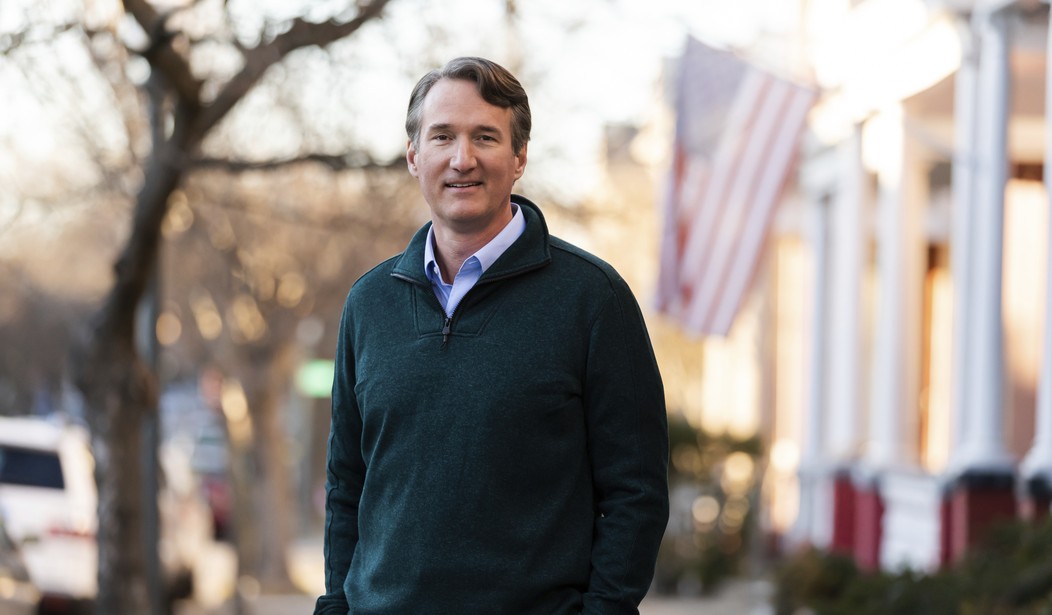While Terry McAuliffe, the former governor of Virginia and current Democratic nominee for the 2021 has been typically polling ahead of his Republican opponent, Glenn Youngkin, his lead tends to be slim. A poll released on Wednesday from the University of Mary Washington provides a different narrative, however, in that Youngkin leads McAuliffe when it comes to likely voters.
McAuliffe enjoys support from 43 percent of total respondents and likely voters. While Youngkin, a former Carlyle executive has 38 percent of support from total respondents, that number is at 48 percent among likely voters.
Reporting for Bloomberg, Ryan Teague Beckwith wrote that "Youngkin’s lead is likely due to higher Republican enthusiasm in the contest."
Former Del. Chris Saxman, who the executive director of Virginia FREE, a non-partisan, pro-business non-profit organization, has been commenting about the enthusiasm issue since months before either candidate won their party's nomination. At the release of this UMW poll, Saxman told Townhall that this "quantifies it and it qualifies it" when it comes to that enthusiasm.
"The reality's obvious," Saxman continued, also noting that "the Democrats are less enthusiastic, their early voting is not going well for them" and that "a lot of Democrats think their party's gone too far to the left."
Saxman also reminded that in his primary race, McAuliffe beat younger candidates of color, who are to his left.
The results paint a hopeful picture for other Republican candidates as well.
In the race for lieutenant governor, Republican nominee former Del. Winsome Sears enjoys 47 percent support from likely voters compared to the 41 percent Del. Hala Ayala, the Democratic nominee, has from such likely voters.
Recommended
Republican Del. Jason Miyares also has a lead with likely voters over the Democratic incumbent, Mark Herring, in the race for attorney general, by 46 percent to 42 percent.
"Since the 1970s, the party opposing the incumbent president has prevailed in the Virginia governor’s race every time except for McAuliffe’s prior win in 2013," is another takeaway Teague Beckwith pointed to in his reporting.
And, according to a takeaway from the university:
Among all respondents, 49 percent thought the nation was moving in the wrong direction, versus only 23 percent saying it was moving in the right direction. For the Commonwealth, 39 percent said Virginia was moving in the wrong direction, compared to 32 percent who said it was moving in the right direction. Forty-eight percent of those surveyed disapproved of President Biden’s job performance, as compared to 44 percent who approved. For Northam, the approve/disapprove numbers were tied at 42 percent each.
“This is an electorate in a very foul mood,” [Stephen J. Farnsworth, professor of political science at the University of Mary Washington and director of UMW’s Center for Leadership and Media Studies] said. “We shouldn’t be surprised. COVID has created the biggest health care and economic shocks to the world in decades and we prematurely thought the crises were over. So it is no wonder that voters are expressing high levels of frustration.”
Regional differences in candidate preference appear to be less distinct in vote-rich Northern Virginia this cycle. Forty-eight percent of likely voters favored McAuliffe, while Youngkin had the support of 45 percent – far from the double-digit advantage Democrats usually enjoy in the Commonwealth’s most populous region.
In the western part of Virginia, a traditionally Republican region, Youngkin is strongly supported: 62 percent of likely voters in that largely rural region favored him, as compared to 27 percent favoring McAuliffe.
Also noteworthy is that 50 percent of likely voters said they would like to see Republicans control the House of Delegates in Virginia.
Saxman was particularly interested in the survey's results when it came to those respondents who voted for now President Joe Biden over former President Donald Trump. Forty-six percent of likely voters and 49 percent of all voters said they voted for Biden, compared to 45 percent of likely voters and 42 percent of all voters who said they voted for Trump.
Thus, Saxman offered, the results indicate "a lot of those Biden voters really don't want to tell people they voted for Joe Biden" and that "they're embarrassed for their vote."
The president won Virginia with 54.1 percent, compared to Trump's 44.0 percent.
As has been the case in numerous other states, Biden is suffering from poor approval ratings in Virginia. According to this poll, 44 percent of both all respondents and likely voters approve of how Biden is handling of his job as president, while 53 percent of likely voters and 48 percent of all respondents disapprove.
The survey, conducted September 7-13, included 1,000 Virginia adults, with 885 of them being registered voters and 528 of them being likely voters. The margin of error for total sample was plus or minus 3.1 percentage points and 4.1 percentage points for likely voters.
























Join the conversation as a VIP Member